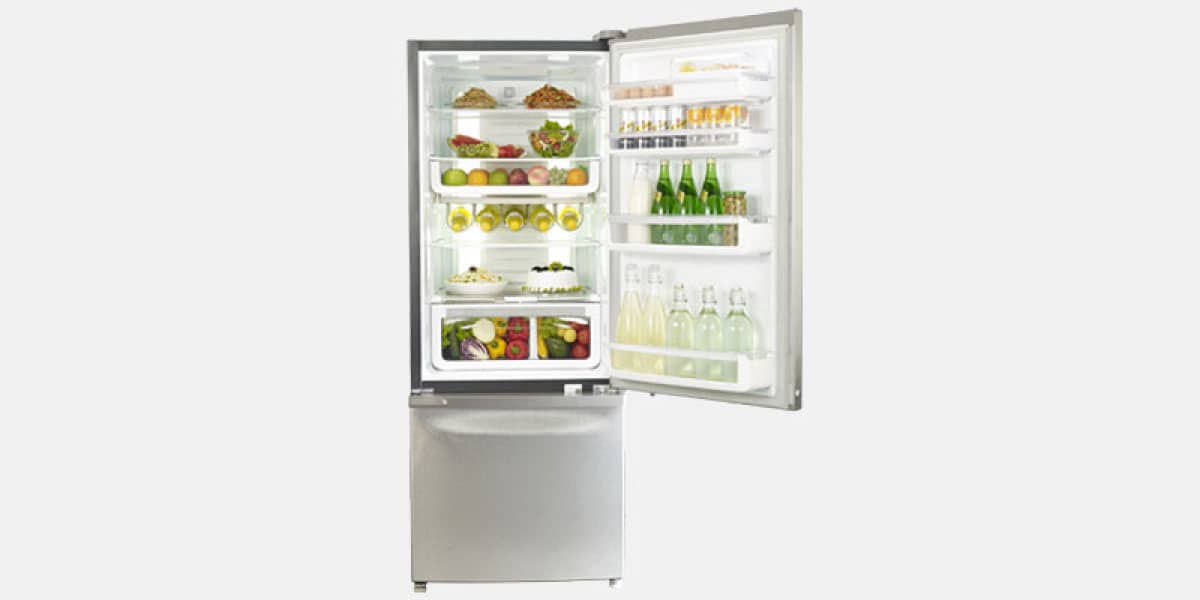Easy tips to keep up your refrigerator’s cooling performance amidst COVID -19 outbreak
We, Indians, all love to pull out those mouth-watering puddings, fruit salads and custards or savoury delicacies that are stored in our fridge. Your refrigerator is probably the most-used appliance in your kitchen. Even more so with the entire family being at home round the clock, owing to the COVID pandemic that has swept the world. It’s only natural to encounter spills, drips, sticky spots, and food debris. Let’s admit it, cleaning and maintaining the refrigerator seem like a tedious affair more often than not. And with the country on lockdown, the breakdown of your beloved fridge would be nothing less than a disaster.
Each one of us is taking all the necessary precautions to keep away sickness - the fridge also needs to be similarly maintained so that it performs smoothly and stores eatables in perfect conditions. So here are a few easy tips to help you keep your fridge ‘fit and healthy’ too (amidst the COVID pandemic).
Check Door Seal
Any fridge wherein the door seal is dirty, cool air will seep out of gaps and thereby the machine needs to work harder to maintain the required temperature. Clean the door seal with a dry cloth so that it seals properly.
Set Right Temperature
It is important to set the fridge and freezer at the right temperature. An extremely low temperature leads to exorbitant electricity bills while the unusually high temperature will spoil stored contents. Hence, the fridge must be kept at setting as suggested in the user manual of the refrigerator.
Give Space
Refrigerator components like compressors generate heat, so provide enough breathing space around the refrigerator (min. 150 mm) for continuous airflow around the refrigerator. If the heat can't escape, the refrigerator's cooling system will work harder and consume more electrical energy.
Defrost Today
In case of direct cool or conventional models, defrost it regularly (when frost builds up over freezer is about 7 mm thick). A defrosted refrigerator operates more efficiently than one that is ice-coated.
Follow the Manual
Each fridge differs from the other in terms of functionality, features and maintenance instructions. Therefore, it is important that the owner reads and understands the manufacturer’s manual provided along with the product.
Load it Right
Avoid adding too much warm food to the freezer. This slows the rate of freezing and can raise the temperature of already frozen foods. The result is lower food quality. Put packages in the coldest part of the freezer first (against the walls or bottom of the compartment). Leave space between packages for cold air circulation.
Avoid storing hard-to-freeze items such as ice cream and orange juice on the freezer door shelves. These foods are best stored in the freezer interior where the temperature variation is minimum with door openings.
Fully loaded refrigerator is fine but ensures adequate air circulation inside.
Keep the food Right to Fight bacteria
Bacteria causes foodborne illness at temperatures of 4 - 60℃. Here are a few basic rules to follow to help keep your food safe.
- Handle food with clean hands. Keep the refrigerator interior clean to avoid contamination.
- Once the food is cooked, it must be kept hot (above 60℃) until serving. Bacterial growth increases greatly when cooked foods remain at room temperature for longer than two hours. Avoid cooling leftovers on the counter before refrigerating.
- Refrigerator and freezer temperatures do not kill bacteria but, will slow its growth. Colder the food, the slower is bacteria growth.
- For proper food safety, food should be refrigerated within two hours of being cooked. Leave container covers loosely fitted/little open so that food cools faster than tightly covered.
- When freezing foods, use a freezer wrap that is air/moisture/vapour-proof, such as freezer bags, aluminium foil or select airtight containers. Force as much air out of packages or containers as possible and be sure they are tightly sealed. Trapped air can cause the food to dry out.
- Fresh meats and poultry can be left in the original store wrapping when freezing for less than 2 weeks. For longer freezer storage, wrap additionally with a suitable freezer wrap.
In conclusion, we would like to point out that a fridge holds special significance in our lives and hence it is necessary that proper usage and maintenance is undertaken towards ensuring its upkeep. If the fridge is used and maintained properly, there will be no food wastage and residents can lead healthier lives since eatables will be stored in perfect conditions.
Tags
0 Comment
You may also like
-

Tips & tricks Party plates: The finger foods everyone grabs first
by Vikhroli Cucina
-

Tips & tricks 6 tiny baking errors that wreck your dessert
by Vikhroli Cucina
-

Tips & tricks Ditch Starbucks: The ultimate DIY Pumpkin Spice Latte hack is here
by Vikhroli Cucina
-

Tips & tricks DIY 15-minute Yummiez platter for a fun Children's Day bash for busy parents
by Vikhroli Cucina

